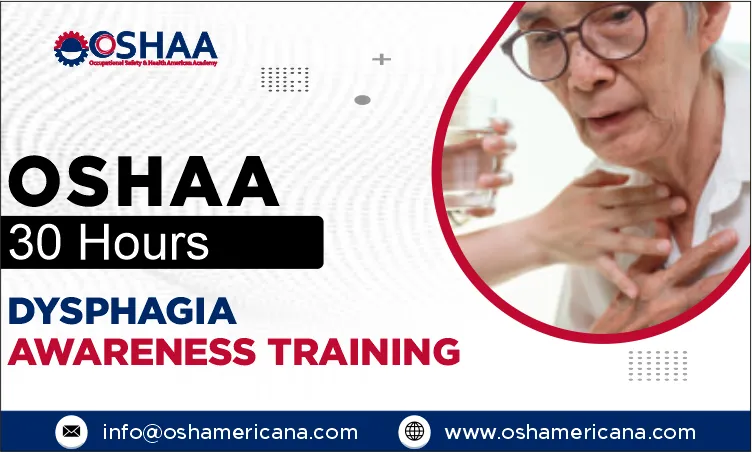The OSHAA 30-Hours Professional Diploma in Physical and Cognitive Work is a specialised programme designed to equip participants with essential knowledge and skills to optimise performance and wellbeing in both physical and cognitive work environments. This diploma adheres to UK professional standards, offering a thorough understanding of the demands and challenges associated with various types of work, and practical strategies to enhance efficiency, safety, and mental health.
Participants will explore the physiological and psychological aspects of work, focusing on how physical exertion and cognitive load affect individual performance and health. The course covers topics such as ergonomics, workplace design, stress management, and fatigue prevention, enabling participants to identify risks and implement solutions that support sustained productivity and wellbeing.
A key component of the diploma is understanding how to balance physical and mental demands, recognising signs of overload or burnout, and adopting best practices to foster a healthy work-life balance. Participants will also learn techniques for improving concentration, memory, and decision-making, alongside methods to reduce physical strain and prevent injury.
The course is ideal for professionals in diverse sectors, including occupational health, human resources, management, and safety. It also benefits those involved in designing workplace policies, employee training, or wellbeing programmes. By completing this diploma, participants will be better prepared to contribute to safer, more efficient, and supportive work environments.
OSHAA 30-Hours Professional Diploma in Physical and Cognitive Work
Study Units
Learning Outcomes
Introduction to Physical and Cognitive Work Concepts (3 Hours)
- Understand the fundamental principles of physical and cognitive work
- Differentiate between physical and cognitive demands in various work settings
- Recognise the importance of balancing both types of work for optimal performance
Physiology of Physical Work and Musculoskeletal Health (4 Hours)
- Describe how physical work affects the musculoskeletal system
- Identify common injuries and disorders related to physical work
- Apply strategies to maintain musculoskeletal health and prevent injury
Cognitive Function and Mental Workload (3 Hours)
- Explain key cognitive functions involved in work tasks
- Recognise signs and effects of cognitive overload and mental fatigue
- Understand how mental workload impacts decision-making and productivity
Ergonomics and Workplace Design for Physical and Cognitive Tasks (4 Hours)
- Understand ergonomic principles for designing safe work environments
- Evaluate workplace setups to reduce physical strain and cognitive stress
- Implement ergonomic solutions tailored to physical and cognitive work demands
Stress, Fatigue, and Recovery in Work Environments (4 Hours)
- Identify causes and symptoms of stress and fatigue related to work
- Understand the physiological and psychological impact of prolonged stress
- Develop effective recovery and stress management techniques
Risk Assessment and Injury Prevention Strategies (3 Hours)
- Conduct risk assessments for physical and cognitive work tasks
- Identify hazards that contribute to injury or reduced cognitive performance
- Develop and apply prevention strategies to minimise workplace risks
Techniques for Enhancing Concentration and Memory (3 Hours)
- Learn practical methods to improve focus and cognitive function
- Apply memory enhancement techniques to support work efficiency
- Recognise factors that hinder concentration and how to mitigate them
Balancing Physical and Mental Demands: Work-Life Integration (3 Hours)
- Understand the importance of balancing physical and cognitive workload
- Develop strategies for managing work-life balance to prevent burnout
- Promote sustainable practices for long-term wellbeing in the workplace
- Provides a thorough understanding of the physical and mental demands of various work environments
- Equips participants with practical strategies to prevent injuries and reduce cognitive overload
- Enhances knowledge of ergonomics to improve workplace design and employee comfort
- Develops skills to recognise and manage stress, fatigue, and mental workload effectively
- Supports the improvement of concentration, memory, and overall cognitive performance
- Promotes balanced approaches to work-life integration for sustained wellbeing
- Prepares participants to conduct risk assessments and implement injury prevention measures
- Strengthens ability to create healthier, safer, and more productive work settings
- Increases career opportunities in occupational health, safety, HR, and management roles
- Empowers participants to contribute positively to organisational health and employee wellbeing
The OSHAA 30-Hours Professional Diploma in Physical and Cognitive Work is designed for participants who aim to enhance their understanding of the interaction between physical and mental demands in the workplace. This course is ideal for:
- Occupational health and safety professionals seeking specialised knowledge
- Human resources personnel involved in employee wellbeing and productivity
- Managers and supervisors responsible for team performance and workplace safety
- Ergonomists and workplace designers focused on improving work environments
- Healthcare practitioners supporting workers with physical or cognitive challenges
- Anyone interested in developing skills to manage work-related stress and fatigue
- Participants looking to advance their careers in industries where physical and cognitive demands are critical
This diploma provides valuable expertise for those committed to fostering healthier, safer, and more effective workplaces.







